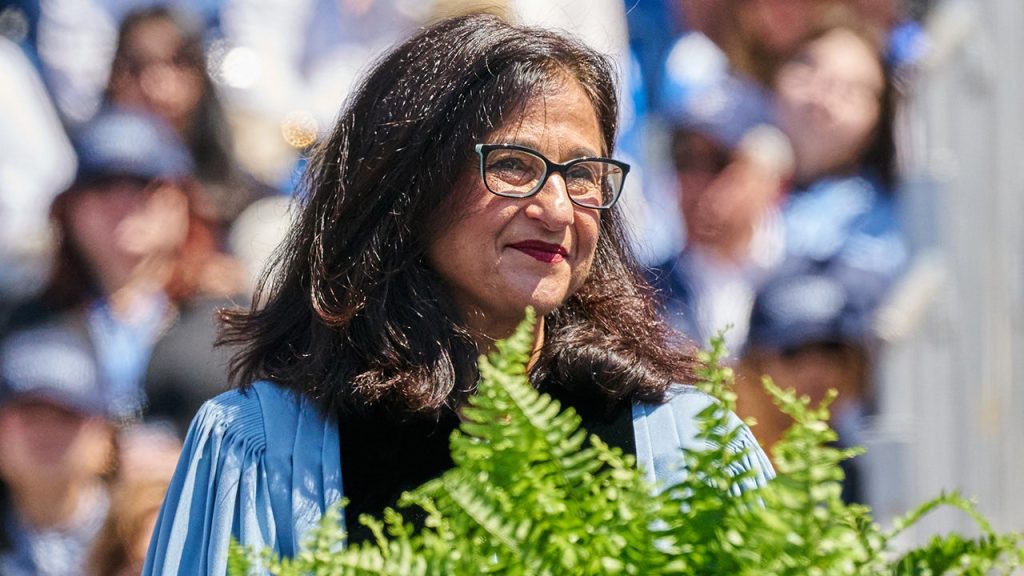Columbia University President Minouche Shafik issued an apology to students after canceling the main university commencement due to security concerns stemming from anti-Israel protests on campus. She expressed deep regret over the disappointment students may be feeling as a result of the cancellation of the traditional ceremony. The decision to replace the university-wide commencement with smaller events was made following a wave of antisemitic protests that led to more than 100 arrests and posed a threat to the safety of those attending. Shafik also acknowledged the strain that the protests put on the campus community, particularly its Jewish members, emphasizing the need for difficult questions to be asked in response to the events.
Shafik highlighted the unique challenges posed by the conflict between the rights of pro-Palestinian protesters and the impact their demonstrations have had on some members of the Jewish community at Columbia. She emphasized the need for university leaders to address these issues and find ways to ensure the safety and well-being of all members of the campus community. Shafik mentioned the complexity of balancing conflicting interests and the difficulty of finding a solution that satisfies everyone involved. This reflects the ongoing tensions and challenges faced by universities when dealing with complex and controversial issues that impact their diverse student body.
The cancellation of the graduation ceremony was met with disappointment and frustration by students, many of whom had been looking forward to the traditional commencement experience. Some students expressed their discontent with the decision, arguing that it reflected a lack of control and authority on the part of the university. The protests and resulting security concerns raised questions about how universities can effectively manage and respond to such situations, while also protecting the rights and safety of all students. Shafik’s apology and acknowledgment of the difficulties faced by the graduating class reflect the complex and challenging circumstances that students have had to navigate during their time at Columbia.
Shafik concluded her message by recognizing the resilience and adaptability of the graduating class, who have faced the challenges of the COVID-19 pandemic and conflict on campus throughout their university experience. She emphasized the importance of being aware of how global events impact our lives and the need for future leaders who can navigate these complex and uncertain times. The cancellation of the commencement ceremony, while disappointing for many, also served as a reminder of the broader issues and conflicts that universities like Columbia must navigate in order to create a safe and inclusive environment for all students.
Overall, the decision to cancel the main university commencement at Columbia University due to security concerns arising from anti-Israel protests sparked a range of reactions from students, university officials, and the broader community. The apology issued by President Minouche Shafik acknowledged the disappointment felt by graduating students and emphasized the need to address the complex and contentious issues that led to the cancellation of the ceremony. The situation highlighted the challenges faced by universities in managing conflicting interests and ensuring the safety and well-being of all members of the campus community. As Columbia University and other institutions grapple with these issues, it remains crucial to find ways to balance free expression and safety, while promoting an inclusive and respectful campus environment for all students.


